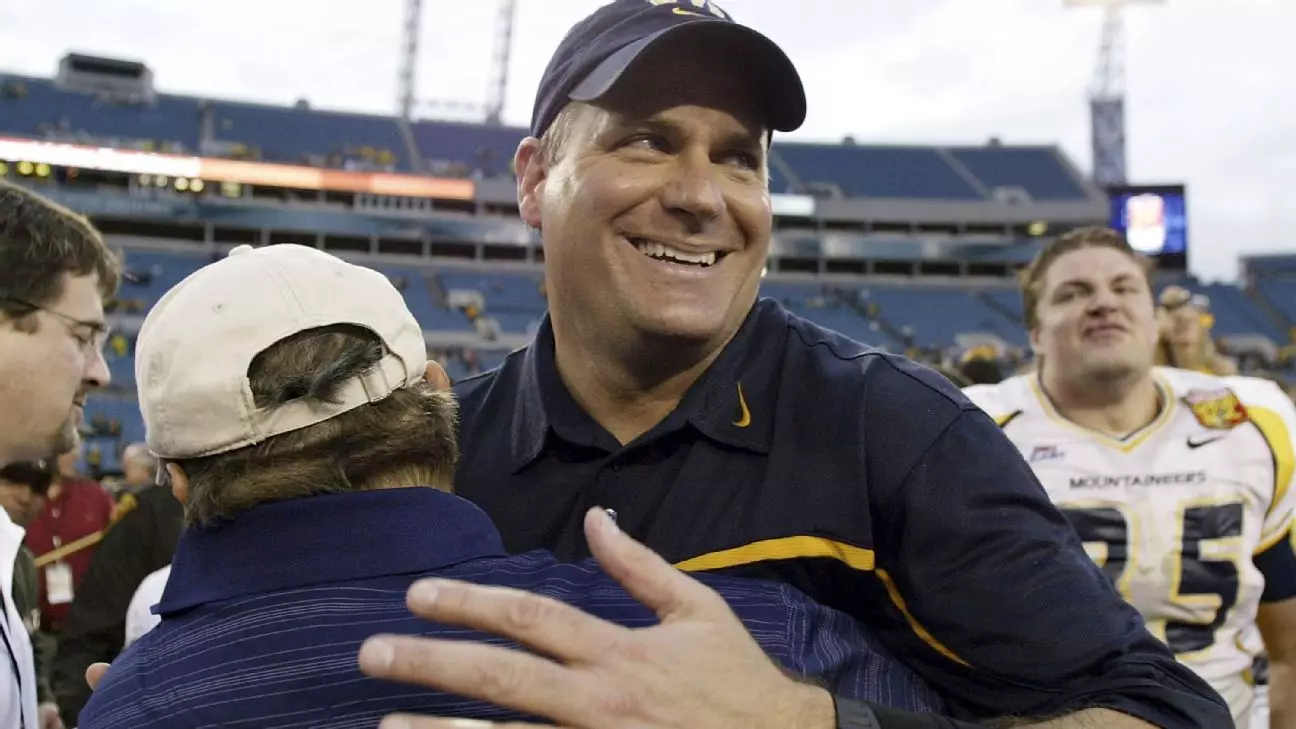Rich Rodriguez, a name that resonates with nostalgia and fervor among West Virginia football fans, is reportedly nearing a return to the program where he carved out an indelible legacy. After a tenure that saw his name etched in the annals of the Mountaineers’ history, Rodriguez is poised to step back into the role of head coach, a position he previously held from 2001 to 2007. Sources indicate that Rodriguez, who currently leads Jacksonville State, is the primary candidate to succeed Neal Brown, recently dismissed from his position. This anticipated reunion allows fans to reflect on the coach’s storied past while contemplating the future trajectory of West Virginia football.
From 2001 to 2007, Rodriguez transformed West Virginia into a formidable powerhouse within the Big East Conference, culminating in three consecutive 10-win seasons. Notably, the 2006 Sugar Bowl win against Georgia was a testament to his ability to galvanize a team that, under his stewardship, continually exceeded expectations. His last season in Morgantown was marred by an upset loss to Pittsburgh, which cost them a shot at the BCS title game—a painful parting that followed a contentious exit to Michigan. This history of success, coupled with the bitter emotions surrounding his departure, adds layers of complexity to his return.
The landscape of college football has evolved significantly since Rodriguez last called Morgantown home. The Mountaineers transitioned to the Big 12 in 2012, a move that has altered the challenges and expectations associated with the program. While West Virginia experienced glory days, the current state of affairs is less favorable; the team has struggled to sustain a competitive edge, recording just one 10-win season and failing to break into the AP poll since 2018. Rodriguez’s comeback is not just a nostalgic endeavor; it represents an opportunity to overhaul a program grappling with identity in a fiercely competitive arena.
Another critical aspect of Rodriguez’s return is the potential impact on fundraising and the athlete recruitment landscape. During Neal Brown’s tenure, West Virginia struggled with limited NIL (Name, Image, and Likeness) resources, which placed the program at a disadvantage compared to other Big 12 institutions. Rodriguez’s reappointment could reinvigorate the local fanbase and attract financial backing crucial for success in this burgeoning landscape of college sports. His previous accomplishments and roots in West Virginia could resonate with both old and new supporters, uniting a divided community to rally behind the program.
While Rodriguez’s history with the school undoubtedly opens doors, it also places substantial pressure on his shoulders. His post-West Virginia coaching tenure has been a mixed bag, with a dismal run at Michigan marred by dysfunction, and a more measured outcome at Arizona that included a Fiesta Bowl appearance but fell short of establishing sustained dominance. Now, as he anticipates facing bitter rival Pitt on September 13, the stakes could not be higher. Winning not only that pivotal game but also restoring the program to national relevance would be a tall order.
Rodriguez’s return to West Virginia, while steeped in emotion and history, begs the question of whether he can navigate the complexities of modern college football. The challenges are innumerable, yet his familiarity with the program and the fervor he elicits from fans offer a glimmer of hope. As the Mountaineers look to reinvent themselves amidst a backdrop of rising competition, Rodriguez’s signature style and strategic acumen may just be the catalyst needed for a renaissance in Morgantown. The possibility of returning to his roots brings excitement and trepidation alike, as both fans and players prepare for what promises to be a thrilling new chapter in West Virginia football history.



Leave a Reply